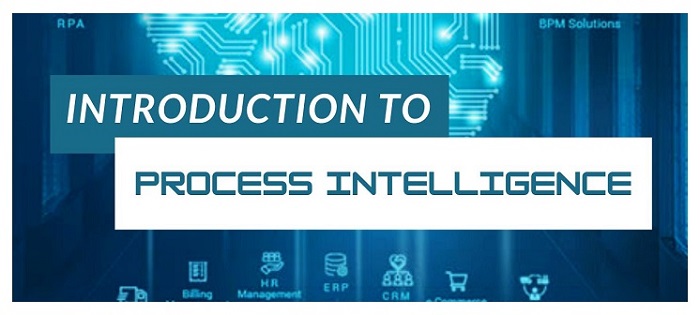
- Process Intelligence - Home
- Process Intelligence - Introduction
- Process Intelligence vs Process Mining
- Process Intelligence - Data Collection
- Process Intelligence - Tools
- Process Intelligence - Applications
- Process Intelligence - Benefits
- Process Intelligence - Challenges
Process Intelligence - Introduction
Process Intelligence (PI) is an approach to collect, analyze, and synthesize process data using artificial intelligence-driven technologies. It is basically a crucial element of process discovery in business organizations. Process intelligence is mainly used to transform raw data of processes and workflows of a business organization into accurate process insights. This helps businesses to identify inefficiencies and issues in workflows, and allows to automate and optimize their processes across the organization.
Process Intelligence is considered an advanced concept that integrates multiple modern technologies like artificial intelligence (AI), machine learning (ML), advanced data analytics, and many other to provide actionable insights and optimize business processes.

In this chapter, we will learn about the basics of process intelligence and its significance in business process automation and optimization.
What is Process Intelligence (PI)?
Process intelligence is an advanced concept that allows business organization to integrate the best aspects of task mining, process mining, and business intelligence to identify and adjust their processes and workflows. It allows organization to scale their process automation, identify inefficiencies, and maximize the process performance.
Hence, the primary objective of process intelligence is to provide a business organization with more accurate information about what processes and workflows exist and what issues are associated with them.
How Does Process Intelligence Work?
As we know any business organization has a number of processes and workflows. But most of the organizations do not know how their processes are actually executing and what people are engaged in them and how they are interacting with process data. Also, the business processes change over time, and inefficiencies and redundancies are introduced in them. When it comes to a large scale, this fragmented process system affects the overall productivity of the organization.
However, process intelligence makes use of advanced technologies like artificial intelligence, machine learning, natural language processing, business process automation, computer vision, etc. to continuously monitor and interpret the process performance across all the departments of the organization. This provides a real-time comprehensive digital map of processes of the organization and helps identifying and resolving issues and bottlenecks.
The work flow of process intelligence in a business organization involves the following key activities −
- Data Collection − First of all, process data is collected from all systems and applications in the organization.
- Aggregation − Collected process data is then compiled.
- Cleaning − The unstructured complied and aggregated process data is transformed into structured information.
- Analysis − The process data is then interpreted and converted into reports and visualizations.
- Take Action and Automate − Insights obtained from process data analysis are used to make decisions and automate processes.
How to Implement Process Intelligence?
The key steps involved in implementing process intelligence in a business organization are explained here −
- Step 1 − Firstly, define the areas where process intelligence can be used or established within the business organization.
- Step 2 − Select appropriate process intelligence tools that come embedded within an intelligent automation platform and work seamlessly with existing processes.
- Step 3 − Put the process intelligence tools in execution and observe how they perform operations in real-time.
- Step 4 − Utilize observation data to identify inefficiencies and improve by redesigning processes and optimizing automation.
Why Process Intelligence is Important?
As we discussed above, process intelligence helps business organizations to discover, automate, analyze, and optimize their processes in an effective and faster way. It allows to ensure that the processes meet the business goals and work at their maximized performance. Hence, we can say process intelligence plays an important role in delivering better customer experiences and employee satisfaction in the organizations.
Some of the key factors further highlighting the importance of process intelligence in business organizations are as follows −
- It allows to identify major inefficiencies and issues in processes and workflows, hence provides enhanced operational efficiencies.
- It uses process data to provide actionable insights.
- It improves the processes by eliminating issues like delays and errors.
- It also enhances customer interactions and satisfaction.
- PI allows organizations to quickly adapt to changes in technologies, market trends, and regulations.
- By allowing to adhere to compliance standards, PI minimizes the risks of regulatory violations.
Conclusion
In this chapter, we explained some of the introductory concepts of process intelligence (PI). From the above discussion, we can conclude that process intelligence is a modern approach used by business organizations to assess their operational performance, identify bottlenecks in their processes, and optimize their workflows through automation.
Let's move to the next chapter and understand how Process Intelligence is different from the Process Mining.